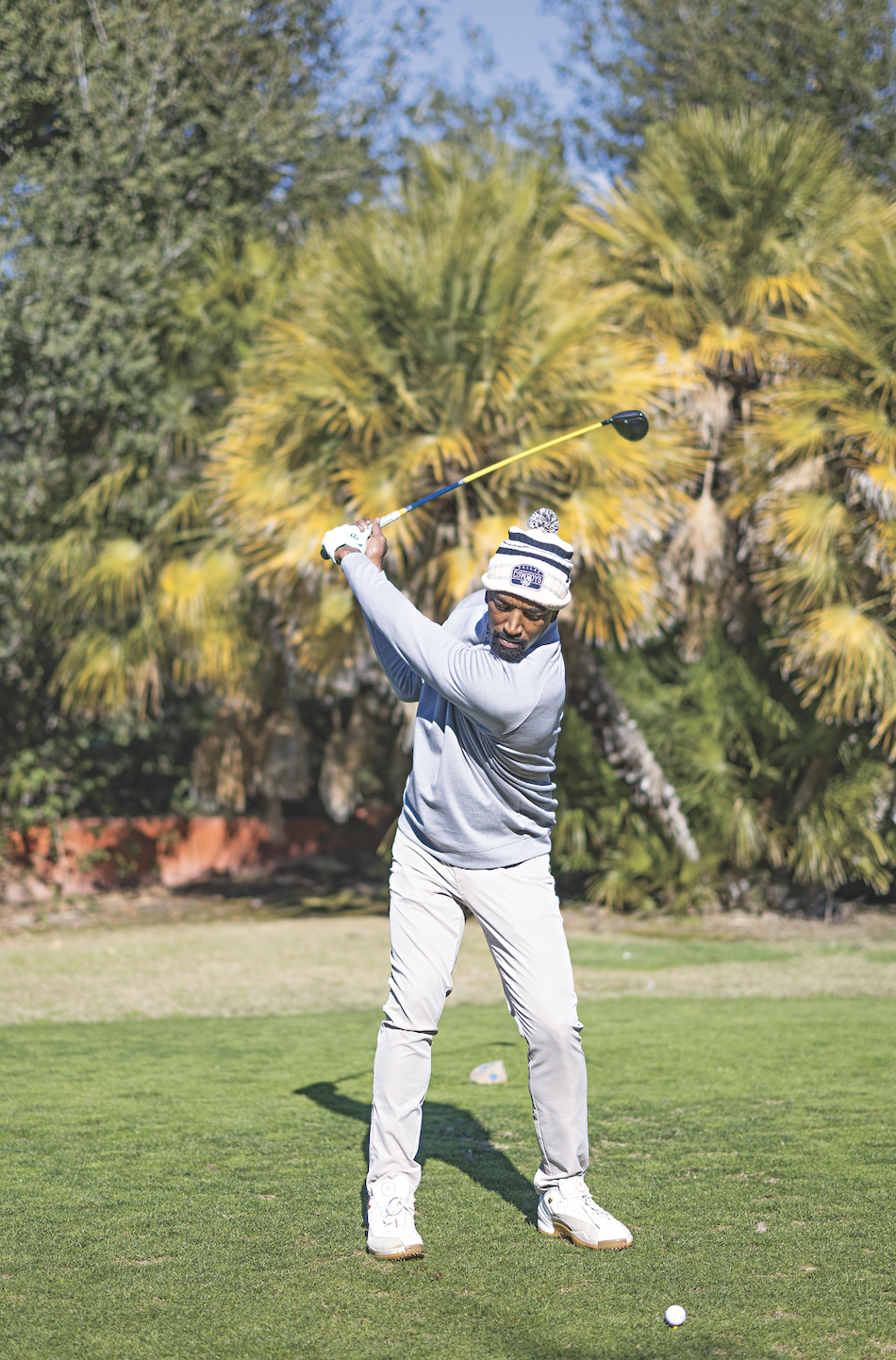JR Smith is sitting in his car, which is parked outside of a local golf store in L.A., thinking about his past. It’s been nearly three years since he played his last professional basketball game, and since then, Smith has picked up another passion—golf—and enrolled at North Carolina A&T, where he’s currently playing on the men’s golf team. Last year, he was named Academic Athlete of the Year and finished with a 4.0 GPA.
But admittedly, the 37-year-old is still dealing with the narrative that followed him throughout his 16 years in the NBA.
“Even when I go on the golf course now, I feel like people still have a misconception of who I am,” Smith says over Zoom. “Even if they know I play golf, I still feel like they still expect me to act a certain way [as] opposed to, like, just a regular dude out here playing golf, you know what I’m saying? Oh, We’re gonna take shots at the golf course, we’re doing this, we’re doing that. It’s like, Nah, we playing golf! Like, the music ain’t blasting, I’m being respectful to the game, I’m being respectful to people in my group, to the caddies. I don’t know what you would think it was. And it’s hard for me because it’s like again, I get caught up in that.”
“That” would be the countless headlines from his time in L.A., New York, Denver and most definitely Cleveland. After the Cavaliers won the 2016 NBA Championship, Smith earned the nickname “Henny God” for carrying a bottle of alcohol in his hands and then being shirtless during the parade (Smith clarified on the “The Warzone” that it was actually champagne).
Despite the fact that he was a certified bucket, set multiple three-point records, won two championships and a Sixth Man of the Year award, the jokes continued. In 2021, a TikTok of him on the NCAT circulated on social media, with one student noting he was “probably off the Henny right now.”
After picking up golf 14 years ago at a fundraiser while he was with the Nuggets, Smith is stepping into a new chapter, both as a student-athlete and the co-host of a new golf podcast, “Par 3.” Here, he talks with SLAM about his NBA days, what it’s like to still be misunderstood and life on the links.
SLAM: When you were in the League, there were a lot of misconceptions about you. How did you deal with that?
SMITH: I deal with it to this day, honestly. People already have so many misconceptions of who I am and so many things that they already have an opinion about before they even meet me. Men and women still tell me to this day, I didn’t think you were like that. Like, I thought you were way more arrogant or way more, you know, just self absorbed or something like that. It’s just, no. I mean, I acknowledge that there are other people out here in this world and it’s not just about me. I understand everybody has feelings and emotions and everything else.
I almost questioned myself like, What persona am I giving off that people have this type of perception of me? Because if y’all really think that I’m like that and then when you finally meet me you’re like, shell shocked, it’s like, Damn, you know? So for me, I kind of questioned myself and took it back to like, Yo, you gotta make sure you on your Ps and Qs, because so many people are watching, and it’s influencing so many different people in a way that even I can’t even control because if I had it my way, it wouldn’t go the way it’s gone.
SLAM: Is that a realization that you’ve come to since your pro career ended, or did you feel that way while you were playing, too?
SMITH: I thought about it more throughout my career because it was, for me, once it got out of hand, it’s like, there’s not so much I can say. My platform wasn’t as big as it is now; there weren’t these platforms where people could really [be in] touch with me and have a better type of understanding of who I am or whatnot. It was literally only what the coaches were saying, if you were a superstar player or the GM. And there wasn’t an outlet for the sixth man or the seventh, eighth, ninth man on the bench and stuff like that. There weren’t any podcasts and interviews and Instagrams to really have that link—or touch—with the fans.
So you can have way more ways to, you know, express yourself and give people a better understanding. For me, it was always, Oh, he’s the bad guy. And everybody was like, Oh OK, well he’s the bad guy. And it was like, Alright, well, did you even take time to know who the bad guy is, where he’s from, what he’s about? You just know that this person told you that he’s the bad guy and y’all just run with it. It’s been like that for so long. Even when I played for the Knicks, the media really ran that team. We had one of the best seasons we’ve had and then one person says something about the coach and then all of a sudden it’s like, Well, he’s got to go. It’s like, Yo, how do you fire the best coach that we’ve had for so long? Just because you want to listen to what somebody in the media is talking about, as opposed to people who actually know the game, the success of the game. You get into that political game and it’s like, what do you do?
SLAM: If you played golf when you were younger, do you think you would have pursued golf or basketball?
SMITH: I probably would’ve chose golf.
SLAM: Wow. Why?
SMITH: I feel like it’s way more on you. I think basketball is very easy to not take the blame.
It’s like, Oh, well they weren’t making shots. I did my job, I had 25 to whatever my numbers were. Golf, nah, it ain’t none of that. This is all you, champ. It’s tough because even in golf, like little times you’ll see people get mad at the caddies and thinking the caddie is getting the wrong number or whatever. But at the end of the day, you hit that shit bro, don’t get mad at anybody else, that is on you! This is not that! And that’s what I love about the game so much, because it’s all accountability. That’s all it is. If you could be accountable for every shot you take and be able to bounce back from a bad shot to your next shot being a good shot, that’s what life is. For me, that’s all it’s about. And that’s where the game is, when you start playing the game like that, it’s like, Oh, OK. I feel like you have a better chance of figuring it out.
SLAM: What do you think is more of an adrenaline rush: knocking down threes in a playoff game or getting a hole in one?
SMITH: Yeah, I think it would be a hole in one. A hole in one is just a perfect swing. I mean, it’s crazy, because it really doesn’t have to be a perfect swing, where if you hit that shit and won. There’s very few people who do it. [Thinking about basketball again] I’m not gonna lie, I don’t know. That’s tough. I just thought about that Atlanta series and that’s tough.
SLAM: What was more nerve-racking: walking onto the golf team at North Carolina A&T or going to the NBA combine or training camp?
SMITH: Walking onto the team for sure because like hoop, no matter what, I’m used to being in the gym. I have routines, and regardless of whoever is in there, I don’t really care about—not that I don’t care about them, but I know that I spent so much time on this regardless of who’s out here. I know what I’m capable of, and I know what I’m going to do. But on the golf course, it don’t work like that. I know that at the end of the day, I can rely on my shooting, get into my step-back, going left or right. Defending. I know where I can hang my hat on the basketball court. On the golf side, it’s like one day it might be my driver, the next day it might be just my putt, the next day it might be my wedges. But it’s never all in unison. Basketball, because I’ve done it so much, it’s like, OK, this is easy, like I don’t even think about it no more. But now in golf, where you already don’t have that confidence, and then you add in competition and then you add in other people just watching and critiquing and it’s like…
SLAM: Does that frustrate you at all? To have played at the highest level in one sport and then pick up a different sport and have to build your skills?
SMITH: No, I love it, because the expectations are so low for me. It’s like I really get to learn and ask all the dumb questions. I’m already a person who likes to ask questions. People always try to make you think that every question that you ask, it’s just like common sense. Like, well, if I’m asking you, it’s not common sense. Don’t make me feel dumb because I’m asking you this question, I don’t care what kind of question it is. If I’m asking you, then I genuinely wanna know, I’m not just asking you just to be an asshole just to be asking. I want to know.
I think a lot of times in this new world, we don’t have space to ask questions. Or not even ask questions, [but] for people to have the patience to answer questions.
SLAM: What’s your relationship like with basketball today? How do you feel about the game?
SMITH: Nah, I ain’t playing. Nah, I can’t afford to mess up my golf game. If I go out there and get hurt, I can’t afford it. If I can’t play golf, I’m miserable. I’m gonna stay in shape, I’m gonna do my yoga, I’m gonna do my stretching. I work on my flexibility more and my calisthenics. I do a little cardio here and there, but not as much anymore. But on the court, nah.
SLAM: Do you miss hooping at all?
SMITH: I mean, I have golf, but it’s not the same. I definitely miss hooping. I love the game, and I feel like if I wanted to I still could [play], but I’m at a different point in my life where I’m like, I’m kind of glad I’m out of the hamster wheel.
Portraits Atiba Jefferson, Action Photo Getty Images.
The post JR Smith Talks Golf and Dealing with the Narrative That’s Followed Him Throughout His Career appeared first on SLAM.

